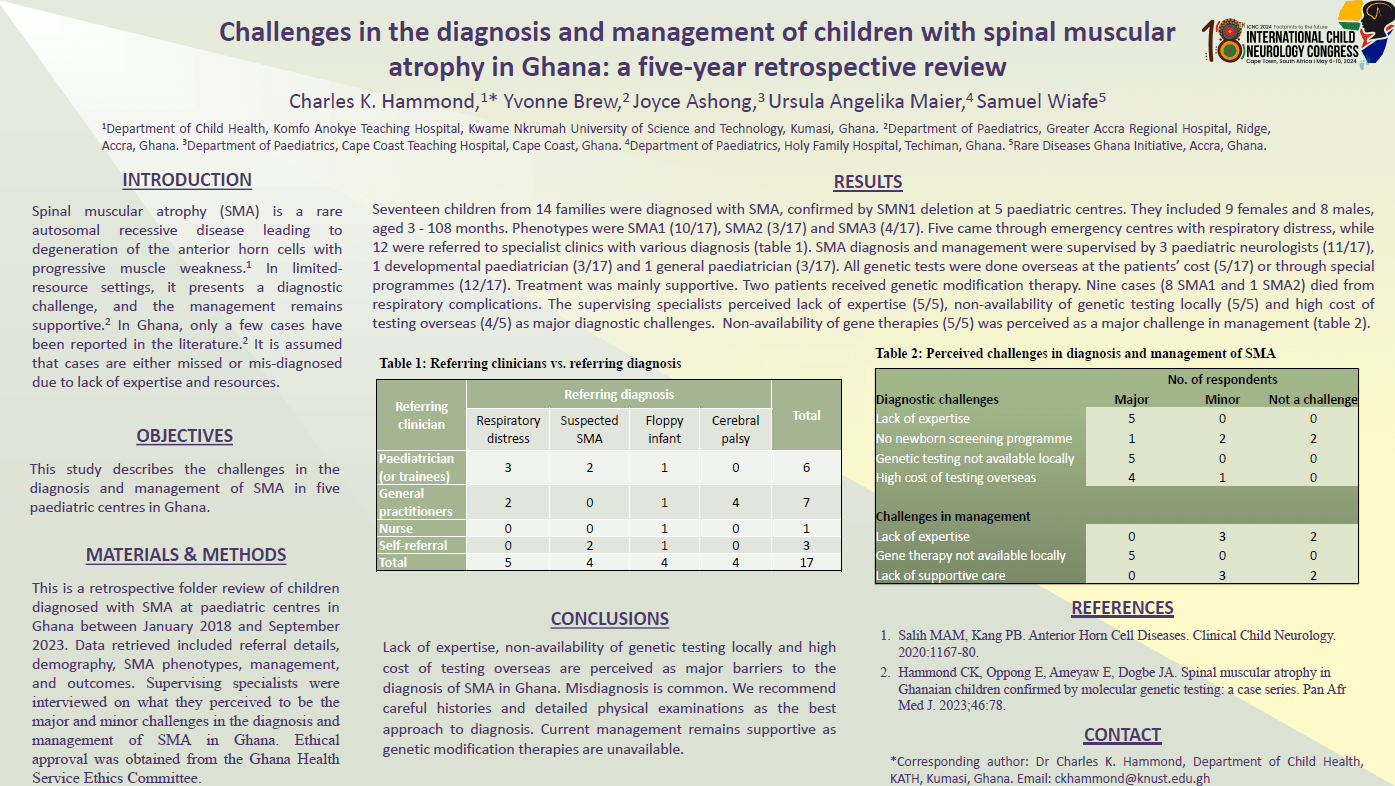Challenges In The Diagnosis And Management Of Children With Spinal Muscular Atrophy In Ghana: A Five-year Retrospective
Introduction: Spinal muscular atrophy (SMA) is a rare autosomal recessive disease of the anterior horn cells with progressive muscle weakness. In limited-resource settings, it presents a diagnostic challenge and the management remains supportive. This study describes the challenges in the diagnosis and management of SMA in five paediatric centres in Ghana. Methods: This is a retrospective folder review of children diagnosed with SMA at one secondary and four tertiary paediatric centres in Ghana between January 2018 and September 2023. Data retrieved included referral details, demography, SMA phenotypes, management, and outcomes. Results: Seventeen children (aged 3 months to 9 years, 9 females) from 14 families were diagnosed with SMA, with genetic confirmation. Phenotypes were SMA1 (10/17), SMA2 (3/17) and SMA3 (4/17). Five came through emergency centres with respiratory distress, while 12 were seen at clinics with referring diagnoses of suspected SMA (4/17), neuromuscular disorders/floppy infant (4/17) and cerebral palsy (4/17). Referring clinicians included general practitioners (7/17), paediatricians (6/14), nurse (1/17) and self-referrals (3/17). All genetic tests were done overseas at the patients’ cost (5/17) or through special programmes (12/17). Two patients with SMA1 received genetic modification therapy. Others received only supportive care. Nine cases (8 SMA1 and 1 SMA2) died from respiratory complications. Conclusion: Lack of expertise and high cost of genetic testing overseas are barriers to the diagnosis of SMA in Ghana. Misdiagnosis is common. We recommend careful histories and detailed physical examinations as the best approach to diagnosis. Current management remains supportive as genetic modification therapies are unavailable.
Charles K Hammond
Kwame Nkrumah University of Science and Technology
Ghana
Yvonne Brew
Greater Accra Regional Hospital
Ghana
Joyce Ashong
Cape Coast Teaching Hospital
Ghana
Ursula Angelika Maier
Holy Family Hospital
Ghana
Samuel Wiafe
Rare Disease Ghana Initiative
Ghana

Charles K Hammond
Kwame Nkrumah University of Science and Technology
Ghana